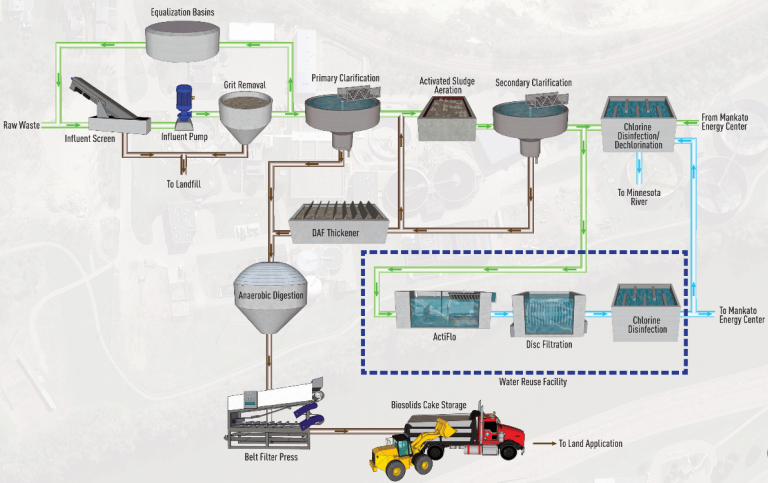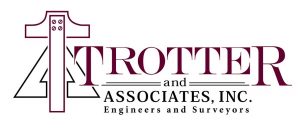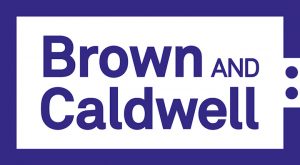 Join CSWEA
Join CSWEA
City of Mankato
Mankato Regional Wastewater Reclamation Facility
Mankato, MN
Mankato originally began producing reuse water in 2007 to supply Mankato Energy Center (a local gas power plant) with cooling water. Over the past 10 years the Reclamation Facility has produced and utilized 1.05 billion gallons of water onsite, 1.55 billion gallons utilized at the Mankato Energy Center, 7.1 million Gallons for irrigation at Riverfront Park, and 4.1 million gallons of water for cleaning trucks, street sweeping, and outside contractor utilization. In total 2.61 billion gallons of reuse water was utilized. This would equate to over $7.5 million in water saved, and 4 full years of Potable Municipal water usage for the City of Mankato left in the aquifer. Mankato’s staff continues to find ways to increase the usage of reuse water and preserve water supplies.
Summary of allowable reclaimed water applications:
Treatment Limits
| Types of Reuse | Reuse Permit Limits | Minimum Level of Treatment |
|---|---|---|
| • Food crops where the recycled water contacts the edible portion of the crop, including root crops • Irrigation of residential landscape, parks, playgrounds, school yards, golf courses • Toilet flushing • Decorative fountains • Artificial snow making, structural fire fighting • Backfill consolidation around potable water pipe • Industrial process water that may come in contact with workers • Industrial or commercial cooling or air conditioning involving cooling towers, evaporative condensers, or spray that creates mist | 2.2 MPN/100 ml. Total Coliform 2 NTU daily average; 10 NTU daily maximum turbidity | Disinfected Tertiary secondary, filtration, disinfection |
| • Cemeteries • Roadway landscaping • Ornamental nursery stock and sod farms with restricted access • Pasture for animals producing milk for human consumption • Nonstructural fire fighting • Backfill consolidation around nonpotable water pipe • Soil compaction, mixing concrete, dust control on roads and streets • Cleaning roads, sidewalks, and outdoor work areas • Industrial process water that will not come into contact with workers • Industrial boiler feed • Industrial or commercial cooling or air conditioning not involving cooling towers, evaporative condenser, or spray that creates mist | 23 MPN/100 ml. Total Coliform | Disinfected Secondary 23 Secondary, disinfection |
| • Fodder,fiber, and seed crops • Food crops not for direct human consumption • Orchards and vineyards with no contact between edible portion • Non food bearing trees, such as Christmas trees, nursery stock and sod farms not irrigated less than 14 days before harvest • In Minnesota, this is commonly called “spray irrigation” | 200 MPN/100 ml. Fecal Coliform | Disinfected secondary 200 Secondary, disinfection (stabilization pond systems with 210 days of storage do not need a separate disinfection process) |

To provide a Water Environment Federation (WEF) organization (Illinois, Minnesota, Wisconsin) offering multiple opportunities for the exchange of water quality knowledge and experiences among its members and the public and to foster a greater awareness of water quality achievements and challenges.




